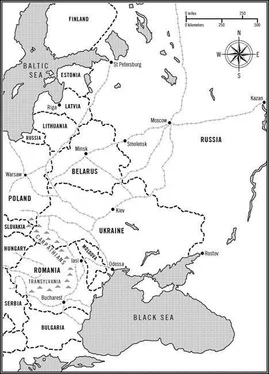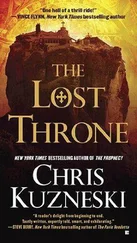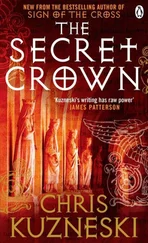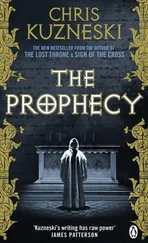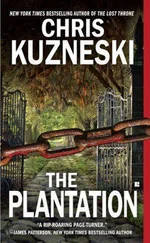Chris Kuzneski - The Hunters
Здесь есть возможность читать онлайн «Chris Kuzneski - The Hunters» весь текст электронной книги совершенно бесплатно (целиком полную версию без сокращений). В некоторых случаях можно слушать аудио, скачать через торрент в формате fb2 и присутствует краткое содержание. Жанр: Криминальный детектив, на английском языке. Описание произведения, (предисловие) а так же отзывы посетителей доступны на портале библиотеки ЛибКат.
- Название:The Hunters
- Автор:
- Жанр:
- Год:неизвестен
- ISBN:нет данных
- Рейтинг книги:5 / 5. Голосов: 1
-
Избранное:Добавить в избранное
- Отзывы:
-
Ваша оценка:
- 100
- 1
- 2
- 3
- 4
- 5
The Hunters: краткое содержание, описание и аннотация
Предлагаем к чтению аннотацию, описание, краткое содержание или предисловие (зависит от того, что написал сам автор книги «The Hunters»). Если вы не нашли необходимую информацию о книге — напишите в комментариях, мы постараемся отыскать её.
The Hunters — читать онлайн бесплатно полную книгу (весь текст) целиком
Ниже представлен текст книги, разбитый по страницам. Система сохранения места последней прочитанной страницы, позволяет с удобством читать онлайн бесплатно книгу «The Hunters», без необходимости каждый раз заново искать на чём Вы остановились. Поставьте закладку, и сможете в любой момент перейти на страницу, на которой закончили чтение.
Интервал:
Закладка:
‘The department was created after World War Two,’ Borovsky told Anna, ‘to house the coins and medals from the Imperial Moscow University.’
‘But it soon became much more than that,’ Olga said. She appeared to be older than the colonel, but it was hard for Anna to be sure. She had the flat face and granite-like head of an aged Latvian, as well as a shock of Brillo-like white hair. An incongruous but beautiful pearl necklace was around her sagging throat. ‘Presently we have more than two hundred thousand pieces from all over the world.’
‘Olga is the curator of the Russian and Soviet portion,’ Borovsky informed Anna. ‘They have one of the best and oldest numismatic collections in Russia.’
‘The world,’ she corrected proudly. ‘And Viktor was quite a friend of the department … the entire museum, in fact.’
‘Was?’ Anna wondered between sips.
Olga smiled at him. ‘Well, you can’t be running off on archeological digs all the time with the Soviet Union disintegrating around you.’
Anna blinked a few times. It was amazing how wrong she had been about the colonel. The more she learned, the more impressed she became. ‘So you went on digs?’
Borovsky made a dismissive gesture, but Olga wasn’t having it.
‘Viktor often joined us in Tuva, the Crimea, even in the Ukraine and Romania.’ She looked at him with affection. ‘And he never failed to help — at least when he wasn’t wandering off on his own.’
‘Enough, enough,’ he grunted. ‘As I said to Natalia, this is official business, Olga.’
‘I suspected as much, which is why I made you slow down. I know how you get on cases.’ Olga smiled at him and sighed. ‘So tell me, what kind of official business?’
Borovsky unbuttoned his uniform coat and reached inside. ‘This kind,’ he said, showing the thin box Anna had found in Andrei Dobrev’s apartment.
The old woman took the box, pulled it under the adjustable arm’s illuminating magnifying glass, and clicked off the lights from a switch under the table lip.
‘Inside,’ Borovsky suggested.
Olga opened the box and peered at the indentation inside the padding.
‘Well?’ he asked.
She glanced at him from over the edge of the glass. ‘I’m guessing you know as well as I do.’
‘I thought so,’ he said.
Anna was dying to know. She did not ask.
Olga looked at Anna, but her question was for Borovsky. ‘May I?’
‘Of course,’ he said.
The curator motioned Anna forward, pointing through the magnifier. ‘See the outlines within the indentation?’ Through the glass Anna saw what seemed to be an etching in the felt of the hollow box. ‘It’s unique, like a fingerprint,’ Olga said. ‘Romanian, gold, first-series leu, twenty lei, 1868.’ There was a moment of appreciative silence before she looked up through the magnifying glass at Borovsky’s wide eyes. ‘Where did you get this?’
Borovsky took the box back and spoke before Anna could answer. ‘I’m sorry, that’s privileged information.’
‘Ah!’ Olga exclaimed. ‘That means we are done.’ She added sadly, ‘I should have taken more time. When will we see you again?’
‘Sooner than you think,’ he said cryptically. ‘Come, Sergeant. We have work to do.’
Anna was about to follow when she felt a hand on her arm. She turned to see Olga looking at her with a concerned expression. ‘Look after him, will you? He likes to think he’s younger than he is.’
Anna placed her hand on Olga’s and nodded more reassuringly than she felt. When she went through the outer office, she noted that Natalia also looked concerned at the speed of Borovsky’s departure and the brevity of his farewell.
Anna caught up with him in the middle of the Black Sea exhibit. It showcased ancient sculptures, vases, urns, and other artifacts — some dating back as far as the fourth century BC — that had been recovered by the museum’s staff. But Anna remained silent despite the questions that had started to pile up like the coins on Olga’s desk.
As they neared the front door, he said suddenly, ‘I want to thank you for your assistance, Sergeant. I will no longer require your services on this matter. You may take the car and report back to your station, discussing it with no one.’
Anna felt as if she had been punched in the gut. During their walk she had noticed the change in him, but she attributed it to contemplation. Something had set Borovsky off. His gentle humor and paternal guidance had evaporated — all because a suspicion had been confirmed?
As his subordinate, she knew she should do as ordered. For one reason or another, he didn’t want her help any more. In the past, she would have nodded and gone back to the station. But the new Anna wasn’t going to do that. She was going to risk a big toss of the net.
‘No, sir,’ she said.
‘Thank you-’
‘I mean, “no sir” as in, “I’m not going.”’
He stopped. ‘You forget yourself.’
She stopped. ‘Quite intentionally, yes. I believe you still require my services.’
Now surrounded by stone and wooden sarcophaguses, statues, papyri, vessels, amulets, and stone hieroglyphic friezes, Borovsky’s stern face softened. ‘Go back to your daughter, Anna. Keep her safe. Make her happy. Raise her well.’
He walked away.
She caught up to him again outside. He was looking across the street at the church and the Moscow River beyond. ‘How can I do that, sir, if I can’t say to her, “I did what was right, not what was ordered”?’
She saw regret, then admiration and appreciation fill his features, before he once again settled into the Viktor Borovsky she had come to know.
He nodded his approval. ‘You are right. A philosophy that is irrefutable.’
That made her smile.
‘Come then,’ he said, ‘we must hurry.’
‘Where to?’ she asked as they hustled to the car.
His answer caught her by surprise.
41
Tuesday, September 18
Kazan, Republic of Tatarstan, Russia
(523 miles east of Moscow)
Pavel Dvorkin knew this city well, almost as well as his native Moscow. Since joining the Black Robes a decade ago, he had made hundreds of trips to the capital city of Kazan — trips he usually looked forward to. But that wasn’t the case today.
Not after his failed mission at the rail yard.
Dressed in the high-collared black tunic, black pants, black boots, and specially tailored jacket of his sect, Dvorkin noted the eyes of those pedestrians passing him on the bright, sunny street. By now his presence on the streets of Kazan was a familiar sight to many. In them he sensed respect and envy, but also concern. That was only right. That was only fair. They had a reason to be scared. He had served his masters for many years, and he had served them well. That was obvious in his bearing and expression, as well as his clothing.
The design of their uniform was truly inspired. Had they donned the long, skirted garment that had served as their wardrobe’s inspiration, they would have been seen as pale imitations of the original. But in this modern version of the traditional garb, they were able to declare their allegiance without words, as well as mark themselves as a group to be reckoned with.
Dvorkin was proud to be a member of the Black Robes. Gone was the stench of the Komitet Gosudarstvennoy Bezopasnosti , the Committee of State Security, which he had fought so hard to become part of as a young man. That organization, known everywhere as the dreaded KGB, had been magnificent when Dvorkin had struggled to impress them.
He had just turned eighteen and had spent his young life preparing for his eventual acceptance into its ranks. He had joined the Communist Party as soon as they had allowed him to and had joined the Party’s security agency shortly thereafter. With the mighty Vladimir Kryuchkov at the helm of the KGB, there was the promise of an even more powerful agency, one in which Dvorkin would’ve had an important role. But somehow that dream never happened.
Читать дальшеИнтервал:
Закладка:
Похожие книги на «The Hunters»
Представляем Вашему вниманию похожие книги на «The Hunters» списком для выбора. Мы отобрали схожую по названию и смыслу литературу в надежде предоставить читателям больше вариантов отыскать новые, интересные, ещё непрочитанные произведения.
Обсуждение, отзывы о книге «The Hunters» и просто собственные мнения читателей. Оставьте ваши комментарии, напишите, что Вы думаете о произведении, его смысле или главных героях. Укажите что конкретно понравилось, а что нет, и почему Вы так считаете.
